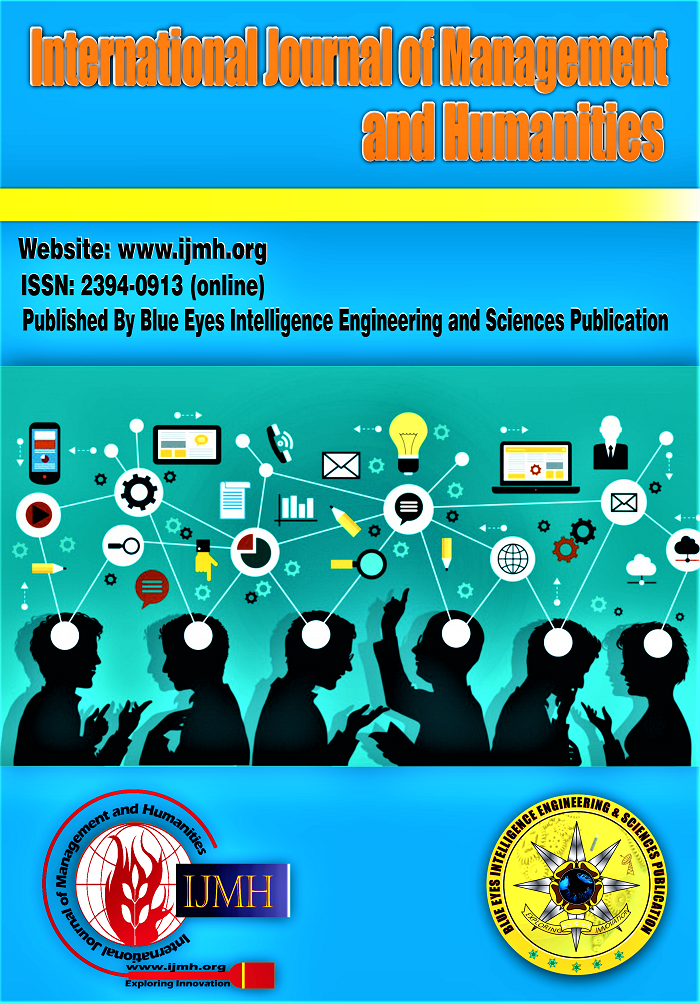An Analysis of Financial Literacy among Working Indian Women
Main Article Content
Abstract
This study looks into working women's financial literacy in India. The survey looks on Indian women's knowledge of investing, savings, and insurance among other financial topics. A survey was distributed online to 500 working women of different ages and income levels as part of the study's quantitative research approach to gather data. The study's conclusions demonstrate that working women in India possess little to no financial literacy, with a very small proportion having enough knowledge of matters pertaining to money. The study also demonstrates the influence of a number of factors on women's financial literacy, including age, income, education, and work experience.
Downloads
Article Details
Section
How to Cite
References
Beattie, V. (2019). A literature study on women entrepreneurs and financial literacy. Journal of Small Business Management, 57(1), 190–208.
Bhushan, P., & Medury, Y. (2019). Evidence from India regarding the relationship between financial literacy and financial behaviour. Journal of Financial Counselling and Planning, 30(2), 230–243.
Chakraborty (2017). An investigation on retirement planning and financial knowledge among Indian urban working women. Journal of Financial Planning, 30(7), 46–55.
Maheswaran, S., & Kumar, S. (2020). The financial inclusion and literacy of women in India. Journal of Finance in India, 14(3), 33–44.
Singhal, A., & Mehta, S. (2020). Factors that affect Indian working women's financial literacy. Journal of Financial Services Marketing, 25(1), 11–20.
Mian, M. A., & Narain, R. (2019). The factors influencing financial literacy among Indian working women. Journal of Asian Finance, Economics, and Business, 6(1), 199–209.
Sharma, S., & Prasad, S. (2018). An investigation of a few cities' working women's financial literacy in India. Indian Journal of Commerce and Management Studies, 9(1), 44–50.
Madhogaria, G., & Singh, A. K. (2018). Indian women's financial conduct and financial literacy. Journal of Business Studies Quarterly, 10(1), 1–16.
Sharma, R., & Vohra, N. (2019). The investing habits and financial literacy of Indian working women. Journal of Financial Services Marketing, 24(2), 73–83.
Pareek, Dr. A., Kumar, S., Holla, Dr. C., & Nagaraju, Dr. G. (2019). “Enabling Women Entrepreneurs in Horticulture and Instruction Parts in India through Microfinance Advancements.” In International Journal of Innovative Technology and Exploring Engineering (Vol. 8, Issue 10, pp. 2663–2666). https://doi.org/10.35940/ijitee.j9429.0881019
Bakar, M. Z. A., & Bakar, S. A. (2020). Prudent Financial Behaviour among Youth: The Role of Financial Attitude. In International Journal of Management and Humanities (Vol. 4, Issue 8, pp. 30–34). https://doi.org/10.35940/ijmh.h0765.044820
Sukaris, Kusani, A., Handayani, A., Rajiani, I., & Saepuloh, A. (2019). Antecedents Behavioral of The Millennial Generation Financial Management. In International Journal of Recent Technology and Engineering (IJRTE) (Vol. 8, Issue 4, pp. 1583–1588). https://doi.org/10.35940/ijrte.b3907.118419
Bhuvana, Dr. M., & Vasantha, Dr. S. (2019). An Outlook of Financial Inclusion with Mediating Effect of Direct Benefit Transfer in LPG Subsidy towards Actual Usage of Banking Technology. In International Journal of Engineering and Advanced Technology (Vol. 8, Issue 6s, pp. 804–811). https://doi.org/10.35940/ijeat.f1153.0886s19
Kapur, Dr. R. (2023). Understanding the Changes taking place in the Family System in Urban and Rural Communities. In Indian Journal of Social Science and Literature (Vol. 1, Issue 4, pp. 40–45). https://doi.org/10.54105/ijssl.b1095.061422





